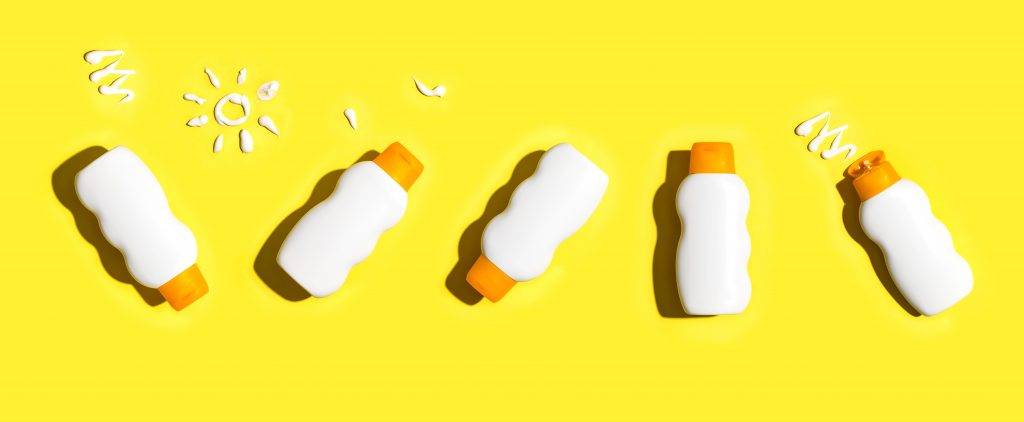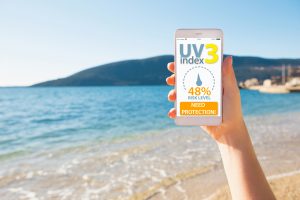
Ultraviolet (UV) rays from the sun contribute most to many skin issues. You can get premature skin aging, lose the elasticity of your skin, and develop cancer cells from constant sun exposure. While we can’t totally get rid of being exposed, there are simple things you can do to protect yourself. You can use an umbrella or refrain from going out when the UV index is extremely high. Wearing sunscreen is also one way to take better care of the skin. Here are more details on preventing skin damage caused by sun’s UV rays.
 In a tropical country like the Philippines, chances are you are constantly under the sun. Thus, you are more likely to have a sun-damaged skin. You can protect yourself by using an umbrella, walking in a shady path, or wearing light material long sleeves. These precautions can lower your chances of premature skin aging and other skin issues caused by overexposure to the sun’s UV rays.
In a tropical country like the Philippines, chances are you are constantly under the sun. Thus, you are more likely to have a sun-damaged skin. You can protect yourself by using an umbrella, walking in a shady path, or wearing light material long sleeves. These precautions can lower your chances of premature skin aging and other skin issues caused by overexposure to the sun’s UV rays.
You definitely have heard about the importance of applying sunscreen a lot of times, but how does sunscreen work to protect your skin? In a June 2013 article published in the “Annals of Internal Medicine,” researchers found out that using sunscreen lessens 24% of skin aging in terms of wrinkles and skin coarseness. A sunscreen product acts like a thin bulletproof vest, blocking UV photons before they can even reach the skin and inflict damage. The term SPF that you usually see on sunscreen labels stands for Sun Protection Factor. Products with a higher SPF allow fewer of the UV photons that produce sunburn to strike the skin.

 The sun might be one of the culprits for skin damage. However, it does not mean that you should totally avoid it. The sun still provides some benefits like being a natural source of Vitamin D. To be safe under the sun, you should know some additional information such as UV index. It measures how strong the chances solar radiation can affect your health. The World Health Organization recommended staying outdoors and enjoying the warmth of the sun when the UV index is between zero (0) and two (2). Then stay in shade when the UV index reaches between three (3) and seven (7). The Organization also emphasized that walking or staying under the sun during the midday can actually cause serious damage to the skin if without proper protection.
The sun might be one of the culprits for skin damage. However, it does not mean that you should totally avoid it. The sun still provides some benefits like being a natural source of Vitamin D. To be safe under the sun, you should know some additional information such as UV index. It measures how strong the chances solar radiation can affect your health. The World Health Organization recommended staying outdoors and enjoying the warmth of the sun when the UV index is between zero (0) and two (2). Then stay in shade when the UV index reaches between three (3) and seven (7). The Organization also emphasized that walking or staying under the sun during the midday can actually cause serious damage to the skin if without proper protection.
The skin is both the most vulnerable and most noticeable part of the body. The sun is one of the factors causing skin issues, but sunlight is not something you can avoid. However, there are steps you can take to prevent skin damage. Using sunscreen, protective gear, and knowing when the right time to go out are some actions you can take to prevent skin cancer and other unwanted effects.
Your favorite health, beauty and wellness products are now online. Start shopping at Watsons by clicking here.
-Medical Observer
Sun-damaged Skin. Accessed at https://www.health.harvard.edu/a_to_z/sun-damaged-skin-a-to-z
Chemiexcitation of melanin derivatives induces DNA photoproducts long after UV exposure. Accessed at https://science.sciencemag.org/content/347/6224/842
UV Index. Accessed at https://www.who.int/uv/intersunprogramme/activities/uv_index/en/index1.html
Overweight and obesity are defined as abnormal or excessive fat accumulation that presents a risk to health. A body mass […]
Around 27 million Filipino adults are overweight or obese, according to the latest National Nutrition Survey conducted by the Food […]
Advances in scientific and technological knowledge have provided unprecedented advantages in terms of immeasurable convenience in our daily living, lightning-fast […]